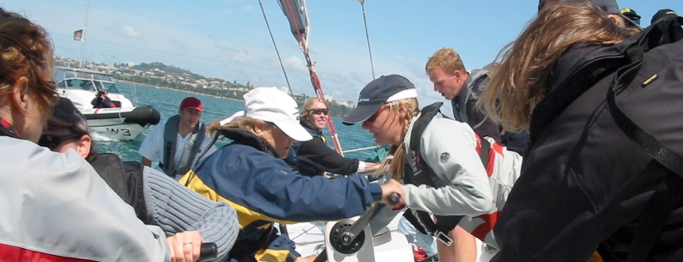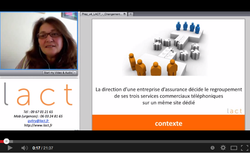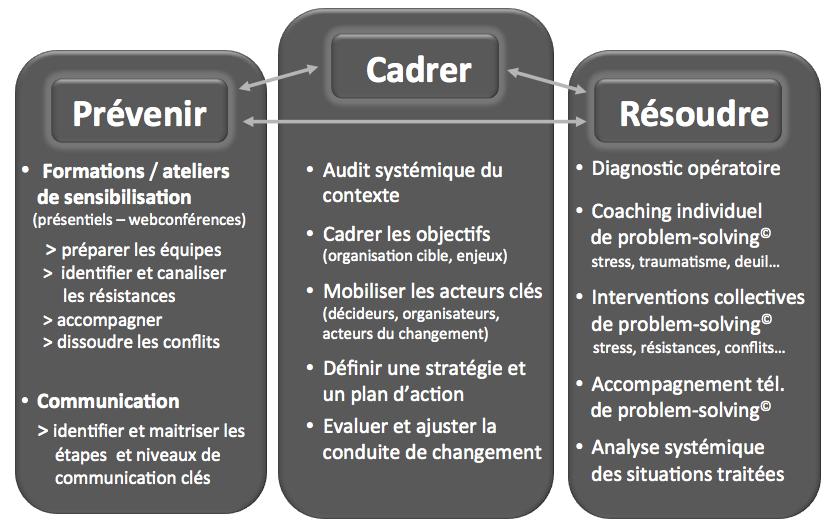“Treat people as if they were what they could be and you will help them to become what they are capable of being” Goethe

In a situation of change, everything is a question of perception;
- for some, a simple new gesture to adopt and their world collapses;
- for others, an entire organization is changed, while its members see it as just a logical evolution.
 Changes may require adaptation strategies based on:
Changes may require adaptation strategies based on:
- continuity, aiming to improve or optimize performance (level 1)
- discontinuity, involving changes in objectives, structure, techniques or culture within an organization (level 2)
>> See the case study-video
Our intervention systems

LACT Assistance ©
A global solution to frame, prevent and resolve.
Framework
Qualitative and quantitative systemic audit ©
Objective: Develop an inventory and a dynamic and interactional vision of the organization's need for change
Framing of objectives
Objective: mobilize the employer and/or his representative to clarify and explain his objectives and priorities for action, in charge of implementing the system.
Mobilize key players
Objective: Mobilize the employer and/or its representative to clarify and explain its objectives and priorities for action, aimed at key players in change.
>> Watch the video on the dimensions of change
Managing the change support system
Objectives
> Share a common language on change
> Drive a dynamic of action
Evaluate and adjust change management
Objective: Validate and update the dynamics of evaluation, development and implementation of actions according to the results obtained.
>>Watch the video on resistance to change
Prevent
Awareness modules - discovery
Themes : Stress and PSR or Change or Managerial regulation or HR regulation or Well-being and Quality of Life at Work or Stress management or co-development
Audience : All types of managers or employees concerned
Objective : Discover and experiment with alternative resources to manage complex and sensitive situations thanks to the relational and strategic approach
Content: The main relational difficulties encountered as a manager;
the key notions around the concept of the relationship; the benefits of a relational and strategic vision in the way of solving a problem. Device : 15 to 500 participants.
“The real journey of discovery does not consist in seeking new landscapes, but in having new eyes”
Marcel Proust
Training-workshops
Theme : Preventing and acting on stress or Change or Managerial regulation or HR regulation or Well-being and Quality of Life at Work or Stress management or co-development
Audience : All types of managers or employees concerned
Objective : To make the individual and collective managerial action
Content: The 7 key stages of the problem solving grid; cases actually experienced by the participants of a complex and sensitive situation at work, with prescriptions; relational profiles, resistance to change, trust and cooperation at work.
Device : 6 to 12 participants.
Remote training via web conference
Theme : Preventing and acting on stress or Change or Managerial regulation or HR regulation or Well-being and Quality of Life at Work or Stress management or co-development
Objective : Develop knowledge and skills conducive to the prevention of psychosocial risks
Objective : Develop strategic communication skills in the different stages of the implementation of the PSR prevention system
Click here to find out more about existing online corporate training courses
Solve
Results: More than 80% effectiveness in solving problems
Systemic operative diagnosis
- Identify the actors involved in the situation (who is involved / who intervenes)
- Meet the actors involved in the situation (gather their point of view / block what contributes to making the problem persist)
- Identify the most mobilizable person(s) in the problem-solving process
Problem solving coaching ©
- Contextualization & systemic operative diagnosis
- Strategy implementation
- Results obtained and readjustment
- Fence
_____________
Quotes
- Who fears to suffer, he already suffers from what he fears. (Montagne)
- Everything is difficult before it is simple (Th. Fuller, Gnomologia)
- The beginning is half of the whole (Plato, The Laws)
- A little impatience ruins a great project. (Chinese proverb)
- Self-confident leads others (Horace, Epistles)
- Be yourself the change you would like to see in the world. (Gandhi)
- They can because they believe they can (Virgil, the Aeneid)
- Treat people as if they were what they could be and you will help them become what they are capable of being (Goethe)
- A little impatience ruins a great project. (Chinese proverb)
______________
“The species that survive are not the strongest species, nor the most intelligent,
but those that adapt best to change”.
Charles Darwin



